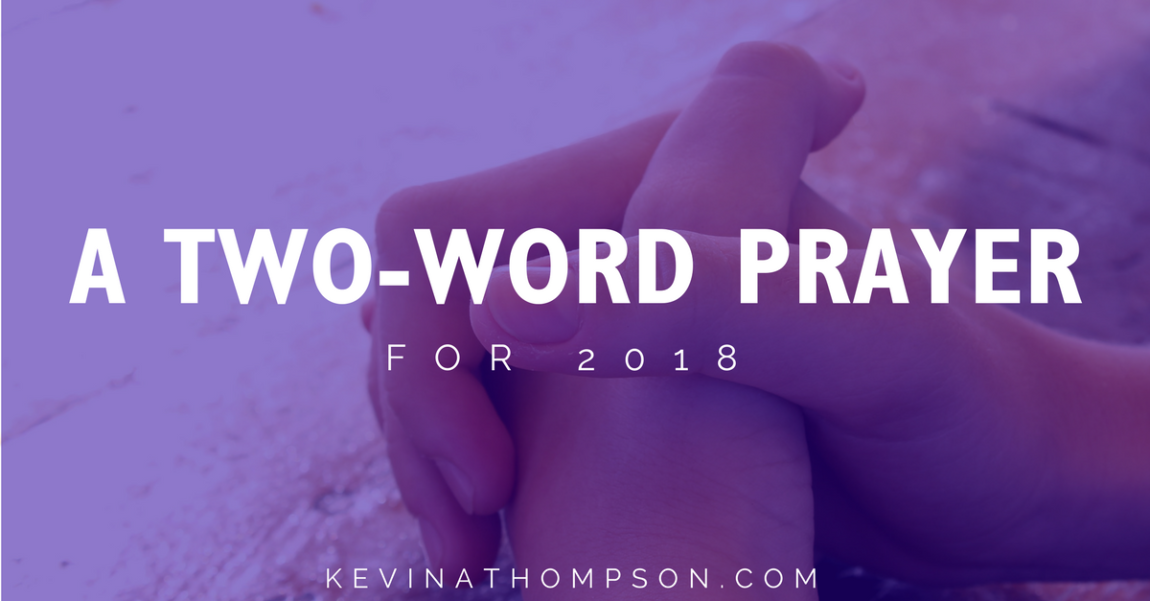Two words. While our prayer lives should be more nuanced than just one idea expressed in two words, I believe if we spent the next year humbly, honestly, and hungrily praying these two words in repetition, our lives would greatly benefit.
We live in interesting times. While every generation has its own intricacies, ours is a day of rapid change. Overloaded with information. Overwhelmed with the number of voices swirling around us. Never have a people lived with so much opportunity, so little restraint, and such control over their own individual lives. It’s a fascinating time.
But it’s ripe with peril. It’s difficult to discern fantasy from reality. It’s hard to know which voices can be trusted and which should be ignored. It’s easy to be overcome by all the inputs into our lives and to either be tossed back and forth by every new concept or to freeze into apathy because of the uncertainty of what to do. (See: Why Some People Don’t Succeed)
And so we pray, “Teach us.”
This prayer–prayed humbly and as a precursor to action–can radically change our lives.
4 Byproducts of This Prayer
It unseats us from the throne of authority. We are not in charge. While we have many skills and much knowledge, there is One who is more knowledgeable than us. Asking God to teach us, places us in the proper position in life. It humbles us before Him, recognizing that He created us and knows how we are meant to function.
It confesses our ignorance. Possibly our greatest danger is the arrogance which causes us to believe we already know. Speaking to a 10-year-old, I mentioned he’s just four years away from being able to learn how to drive. “I already know,” he said. He thinks he does. He’s a passenger in a car every day. He watches someone drive all the time. He assumes watching means knowing. We know it doesn’t. Having been there, we know it takes years of experience before he will be a good driver. Even though he has watched many people drive, he may not even know how to turn the car on (has he seen people press the brake while they turn the key) the first time he sits in the driver’s seat. As foolish as it is for a 10-year-old who has never driven to assume he knows how to drive, so it is foolish for us to assume we know what is best for us. We must recognize our need.
It implies that we are ready to learn. When we ask to be taught, it implies we are passionate to learn. In high school, students feel forced to learn–it’s the law that they attend. In college, many students feel learning is a hoop to jump through–they are there in order to get something else. In graduate school, most students are passionate about the subject matter–they want the degree and the knowledge which goes with it. To pray, “teach us” is like being in graduate school. We want to know.
It accepts the curriculum before it comes. If we ask someone to teach us, we don’t get to dictate the format they use. A teacher chooses the method which is best for the student. When we pray “teach us,” God decides how he will transmit the information to us. Our task is to assume that everything which comes our way is designed by God to transform our hearts and minds. When we fail to pray for God’s guidance, we are tempted to assume the circumstances of life are coincidental and pointless. However, when we expect God’s instruction, every situation has potential and meaning. If your life is boring, pray for God to teach you.
Us, Not Me
Notice the prayer is “teach us” and not “teach me.” As a modern American, I am used to praying “teach me.” Life is about me and my relationship with God is solely personal. However, the Biblical prayer is “teach us.” Christianity recognizes a more communal approach to life and faith. While as an individual, I have a responsibility, it doesn’t stop with me. For God to teach us, individuals must learn on their own, but they must also learn together. (See: Why You Unintentionally Hurt Other People)
We greatly underestimate the influence our communities have over our lives. We are shaped by those around us. If we are learning in isolation, that learning will not change us. We need others to fully learn what is necessary and to apply it to our lives.
Praying “us” instead of “me” also causes us to seriously consider who our community is. For whom are we praying? Who are we consciously choosing to spend our lives with knowing that they will influence us? To whom are we submitting ourselves, learning from what God is teaching them?
If you want a meaningful year, every day wake up and pray for God to “teach us.”
“Teach us to number our days that we may get a heart of wisdom,” Psalm 90:12.



